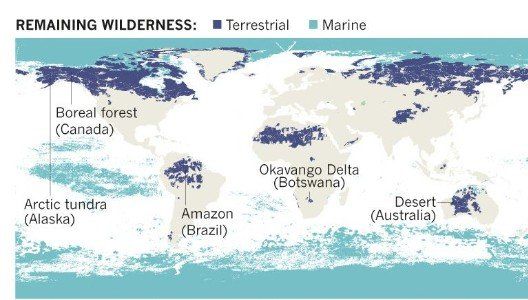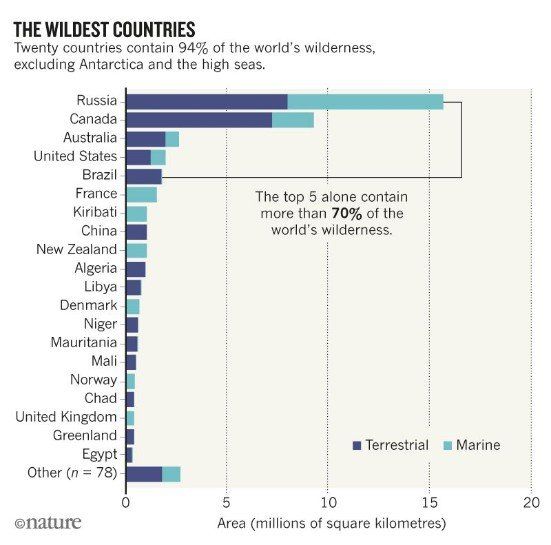Last of the world's wilderness is disappearing!
The world's last wilderness areas are rapidly vanishing, with explicit international conservation targets critically needed, according to University of Queensland-led research.
An international team recently mapped intact ocean ecosystems, complementing a 2016 project charting remaining terrestrial wilderness.
Professor James Watson, from UQ's School of Earth and Environmental Sciences, said the two studies provided the first full global picture of how little wilderness remains, and he was alarmed at the results.
A century ago, only 15 per cent of the Earth's surface was used by humans to grow crops and raise livestock, today, more than 77 % of land—excluding Antarctica—and 87 % per of the ocean has been modified by the direct effects of human activities.
Between 1993 and 2009, an area of terrestrial wilderness larger than India—a staggering 3.3 million square kilometres—was lost to human settlement, farming, mining and other pressures.
In the ocean, the only regions that are free of industrial fishing, pollution and shipping are almost completely confined to the polar regions.
UQ Postdoctoral Research Fellow James R. Allan said "the world's remaining wilderness could only be protected if its importance was recognised in international policy".
Some wilderness areas are protected under national legislation, but in most nations, these areas are not formally defined, mapped or protected.
The researchers insist that global policy needs to be translated into local action.
"One obvious intervention these nations can prioritise is establishing protected areas in ways that would slow the impacts of industrial activity on the larger landscape or seascape," Professor Watson said.
The article has been published in Nature .
Read more:
Explore further: First mapping of global marine wilderness shows just how little remains
More information: Protect the last of the wild, Nature (2018). DOI: 10.1038/d41586-018-07183-6
© Ocean Research & Conservation Ireland (ORCireland) and www.orcireland.ie , est. 2017. Unauthorized use and/or duplication of this material without express and written permission from this site’s author and/or owner is strictly prohibited. Excerpts and links may be used, provided that full and clear credit is given to Ocean Research & Conservation Ireland and www.orcireland.ie with appropriate and specific direction to the original content.
SHARE THIS ARTICLE















